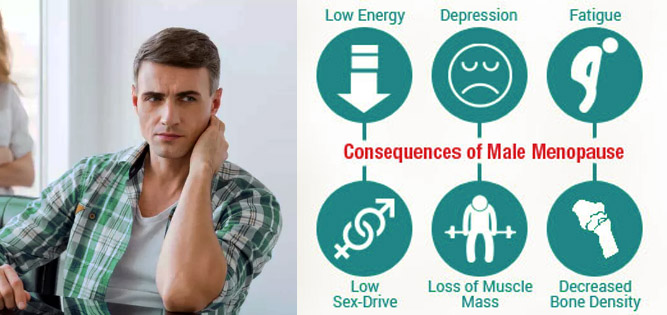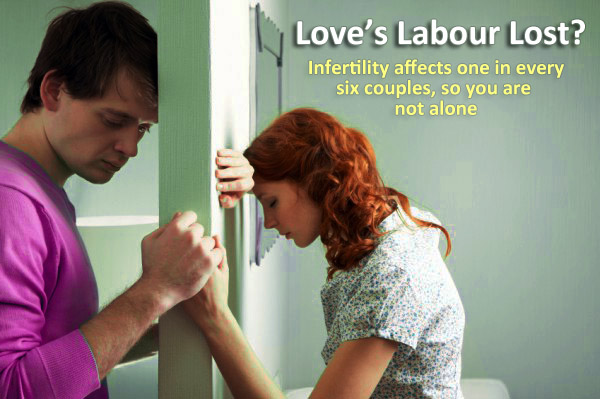A fall in the sperm count in the reproductive years is now a serious global problem and unfortunately the crisis is equally acute in India. According to specialists, the sperm count of a normal adult in India has plunged to around 20 million per ml, one-third of what it was three decades ago.

Dr Duru Shah, consultant obstetrician, gynecologist and an infertility specialist says, “Male infertility may be to blame for up to 40 per cent of the cases where a couple is unable to conceive. Nearly one in five healthy men between 18 and 25 have an abnormal sperm count.”
Dr Firuza R Parikh, head of Assisted Reproduction and Genetics in a city hospital says, “The detrimental effects on sperm production and quality go beyond one’s current lifestyle. In fact it is transgenerational. That means what our parents did or did not do, will affect our fertility potential. For example, if a woman has smoked heavily throughout her pregnancy, there is a possibility that her son will be born with less testicular cells, will produce less sperm in his lifetime, may have a higher chance of getting testicular cancer and also have a higher chance of having undescended testes.”
Here are a few factors that cause infertility in men.
LIFESTYLE: Dr Sandeep Mane, consultant in Reproductive Medicine and Surgery, says, “The main reason for this problem is the current lifestyle — late marriages, psychological issues, physical exhaustion, habits such as smoking, alcohol and drugs, infections.” The focus of men’s lives these days has shifted to achieving professional excellence. They work long hours, sleep patterns are disturbed and dietary irregularities are high. Physical exhaustion and fatigue leads to decreased libido and inability to physical perform the act. Dr Rajesh Parikh (Neuropsychiatrist at a city hospital) who counsels infertile patients has shown time and again the effects of stress on sperm counts. Couples who have been counselled by him to take a holiday while awaiting IVF treatment, have conceived on their own despite low sperm counts.
BAD HABITS: Smoking, drinking and doing drugs have adverse effects on fertility. They affect the hormonal balance that is necessary for the sperm production. Mainly, the sperm concentration and the motility is affected. Smoking is a risk factor, as it impairs sperm count and motility, reduces sperm lifespan and may also cause genetic changes that affect the offspring. Similarly, alcohol lowers the production of sperm and of the male hormone testosterone.
HORMONES: Stress, anxiety and depression, and the medications taken to treat these conditions, adversely affect the sperm production process. Sperm production is a neuro-hormonal process controlled by the brain.
DIABETES: Diabetes can lead to decreased libido, erectile dysfunction and decreased sperm concentration and motility.
FREQUENCY OF INTERCOURSE:
Erectile dysfunction and premature ejaculation are common problems. Frequency of intercourse also plays a role in male subfertility. Daily intercourse leads to decreased sperm concentration and too infrequent (gaps of more than 10 days) leads to decreased motility.
MULTIPLE PARTNERS: Infections affect the sperm production and sometimes the ejaculation process. Multiple sexual partners can lead to sexually transmitted diseases. Tuberculosis can also affect male fertility.
ENVIRONMENTAL FACTORS: Many studies offer substantial evidence that industrial pollutants may be interfering with the hormone that regulate growth, health and behaviour in wildlife and humans, thus contributing to birth defects, problems of sexual development, breast cancer, prostate cancer, and even mental problems like attention deficit disorder, diminished IQ, and violent behaviour.
NUTRIENT DEFICIENCY: Deficiencies of Vitamin C, Selenium, Zinc and Folate may also be risk factors.
OTHER FACTORS: Wearing tight underwear or trousers, bathing in very hot water, sitting for long hours, pesticide exposure and being overweight (fat layers sag on the testicles) lead to infertility. Laptops too affect fertility, because they are frequently positioned close to the scrotum. The user sits with his thighs close together, and this traps the scrotum between the thighs.
A lot of bicycling too has been linked to impotence in men as pressure from the bike seat may damage blood vessels and nerves.
FACT OF THE MATTER
Men are considered infertile if their sperm counts drop as low as 20 million per ml, although it is still possible for a man with that sperm count to sire a child, if other factors are all favorable. If sperm count drops much below that, however, reproduction becomes increasingly difficult.
AZOOSPERMIA
In this condition there is no sperm at all in the semen sample, despite a normal and healthy libido and seemingly normal semen.
HOW TO INCREASE YOUR SPERM COUNT
Infertility can be dealt with better, if you keep the following in mind, say specialists.
- Quit smoking and alcohol.
- Exercise regularly but the intensity and duration should be moderate and under supervision — excessive physical exercise has a negative influence on fertility. Lose excess weight, as it tends to cause testosterone.
- Eat nutritious food, which is low in fat and high in protein, vegetables and whole grains. Reduce caffeine intake.
- Avoid excessive usage of lubricants and vaginal tablets, they can also cause sperm death.
- Do not store your cellphone in the trouser pocket, or place your laptop on your lap. Protect testicles from too much heat.
- Avoid high temperature conditions. Once in a while it is fine taking steam baths, spas.
- Wear loose undergarments.
- Reduce stress levels by learning relaxation techniques like yoga and meditation.

- Take a conscious effort to balance the physical and mental health. Physical fitness and mental relaxation improve male fertility.
- Anabolic steroids should be taken under the guidance of a proper doctor as it can lead to Azoospermia, the term used when there is a complete absence of sperms.
- Intake of vitamins like Vitamin C, A, E and Zinc should be regular. Reactive oxygen species (ROS) are present in the semen. Vitamins can decrease the level of ROS. Vitamins help in synthesis and development and maintenance of the normal sperms and they help in avoiding the clumping of sperms.
- It is important to maintain good sexual health. Regular intercourse in a stable relationship reduces the chances of infections and improves the fertility.
A FEW TREATMENTS…
One of the treatments is the Intra Cytoplasmic Sperm Injection, or ICSI, an infertility treatment utilising micromanipulation technology that specifically addresses male factor infertility issues. When a single sperm is injected directly into the egg, it virtually eliminates the problems and limitations of poor sperm quality. ICSI not only addresses the issues of poor sperm motility and low count, but it is also successful with sperm that are considered less than ideal for an IVF process.
Another exciting breakthrough in the field of male factor infertility and micromanipulation is a process called Round Spermatid Nucleus Injection or ROSNI that specifically targets men who are not manufacturing sperm and have zero sperm counts. The ROSNI process involves taking immature cells (round spermatids) directly from the testicle, removing the nucleus containing the genetic material and injecting the nucleus into the female partner’s eggs, which are removed during an in vitro fertilisation cycle. Researchers believe that this technique will eventually become a successful technique that will allow men who previous had no hope, to father a biological child.


